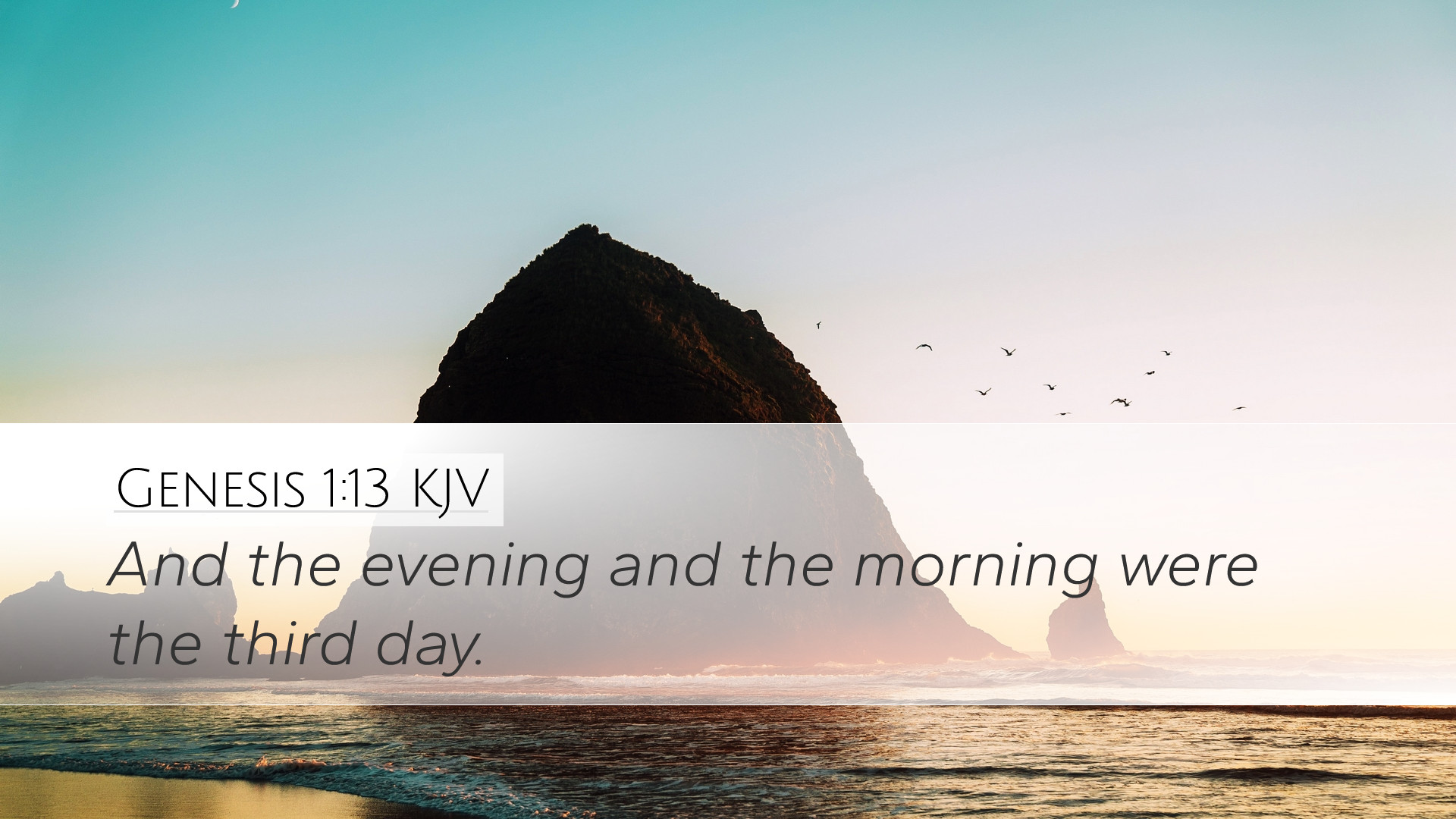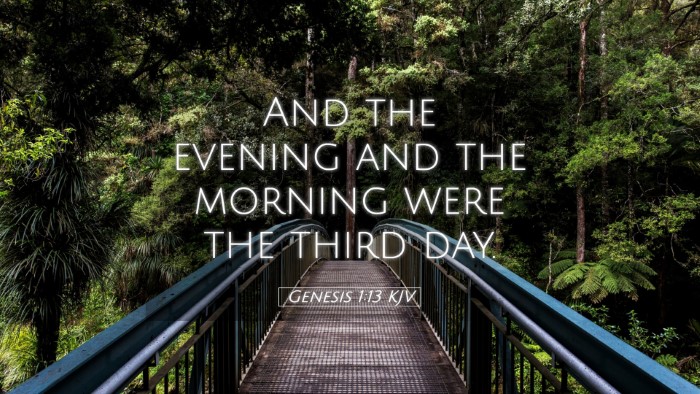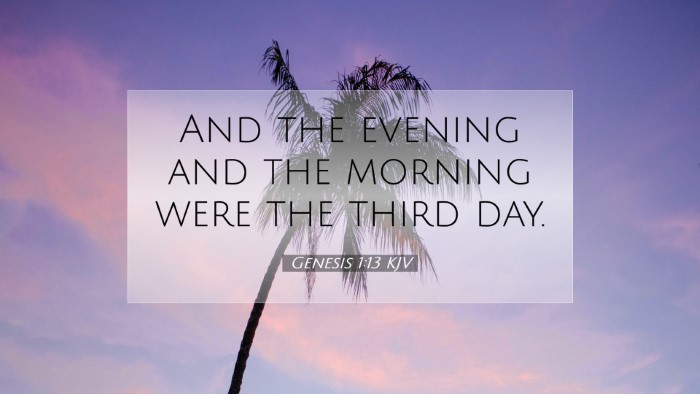Genesis 1:13 Commentary
Verse Context: Genesis 1:13 states, "And there was evening, and there was morning—the third day." This verse marks the conclusion of the third day of creation in the biblical narrative, where God continued to delineate His creative work.
General Overview
This verse encapsulates the completion of the third day and signifies the ongoing process of creation. The repetition of the phrase "there was evening, and there was morning" establishes a rhythmic pattern that expresses the orderly nature of God's creative power. Following the insights from various public domain commentaries, we can extract profound theological implications from this passage.
Theological Significance
Creation Order: Matthew Henry emphasizes that the structured account of creation showcases God's sovereignty and intentionality in all His works. Each day of creation builds upon the previous one, reflecting God’s authority over time and matter. The regularity of “evening and morning” underlines the idea that time itself is a creation of God, demonstrating His power over both the physical and temporal realms.
Transformation and Continuity: Albert Barnes observes that the transition from evening to morning signifies the cyclical nature of time and God's ability to bring order from chaos. The darkness of evening represents potential and the need for light, which is indicative of the transformation that God achieves through His creative acts. This reflects a deeper theological theme where God brings light into darkness, a motif that reappears throughout Scripture.
Symbolism of Light and Darkness
Light vs. Darkness: Adam Clarke notes that light is often a symbol of divine presence, knowledge, and goodness, while darkness symbolizes ignorance, evil, and chaos. The phrase “God said, 'Let there be light,'” from Genesis 1:3 precedes this verse to establish a foundational dichotomy. By declaring the creation of light, God sets the stage for all that follows, culminating in the very essence of creation being perceived as good.
Reflection on the Creation Days
Significance of the Third Day: The third day is particularly notable as it introduces the element of vegetation, which is vital for sustaining life on earth. Henry points out that God first creates the land before calling it to produce. This not only illustrates God’s providential care but also the interdependence of creation—land yielding fruit and supporting life speaks to the glory of God evidenced in the natural world.
Lessons for Ministry and Daily Life
- Embrace the Rhythm: The structure of the creation week encourages believers to appreciate the rhythm of life—balance between work (creation) and rest (evening). Pastoral ministry can benefit from understanding the importance of periods of labor followed by times of reflection and rest.
- Hope in Transformation: Just as God transforms the formless and void into a structured and fruitful creation, so can He transform our lives. This is an encouragement for those struggling with chaos, offering hope that God is at work in each of us.
- Celebrate Creation: Understanding the intentionality of creation reinforces the importance of stewardship. As pastors and theologians, encouraging congregations to value and care for creation reflects our respect for the Creator.
Conclusion
In summary, Genesis 1:13 serves as an important theological anchor in the narrative of creation. The repeated structure of "evening and morning" not only denotes time but emphasizes God’s sovereign control over creation. Through the insights gained from public domain commentaries, we recognize the profound implications of God bringing forth light, order, and life. This passage invites believers to meditate on the majesty of God as the Creator and encourages a life that reflects the rhythm of divine creation—embracing both labor and rest.


